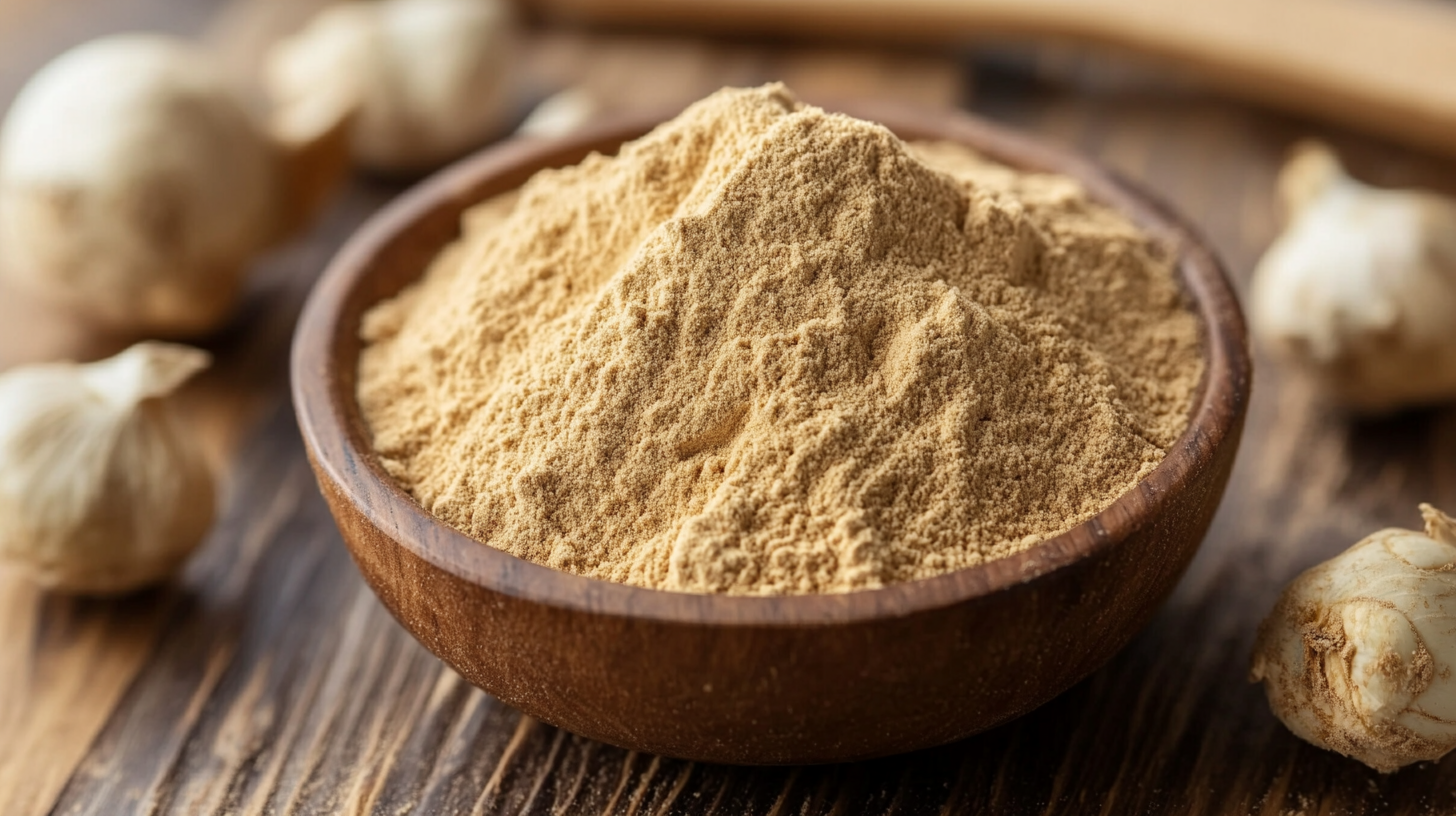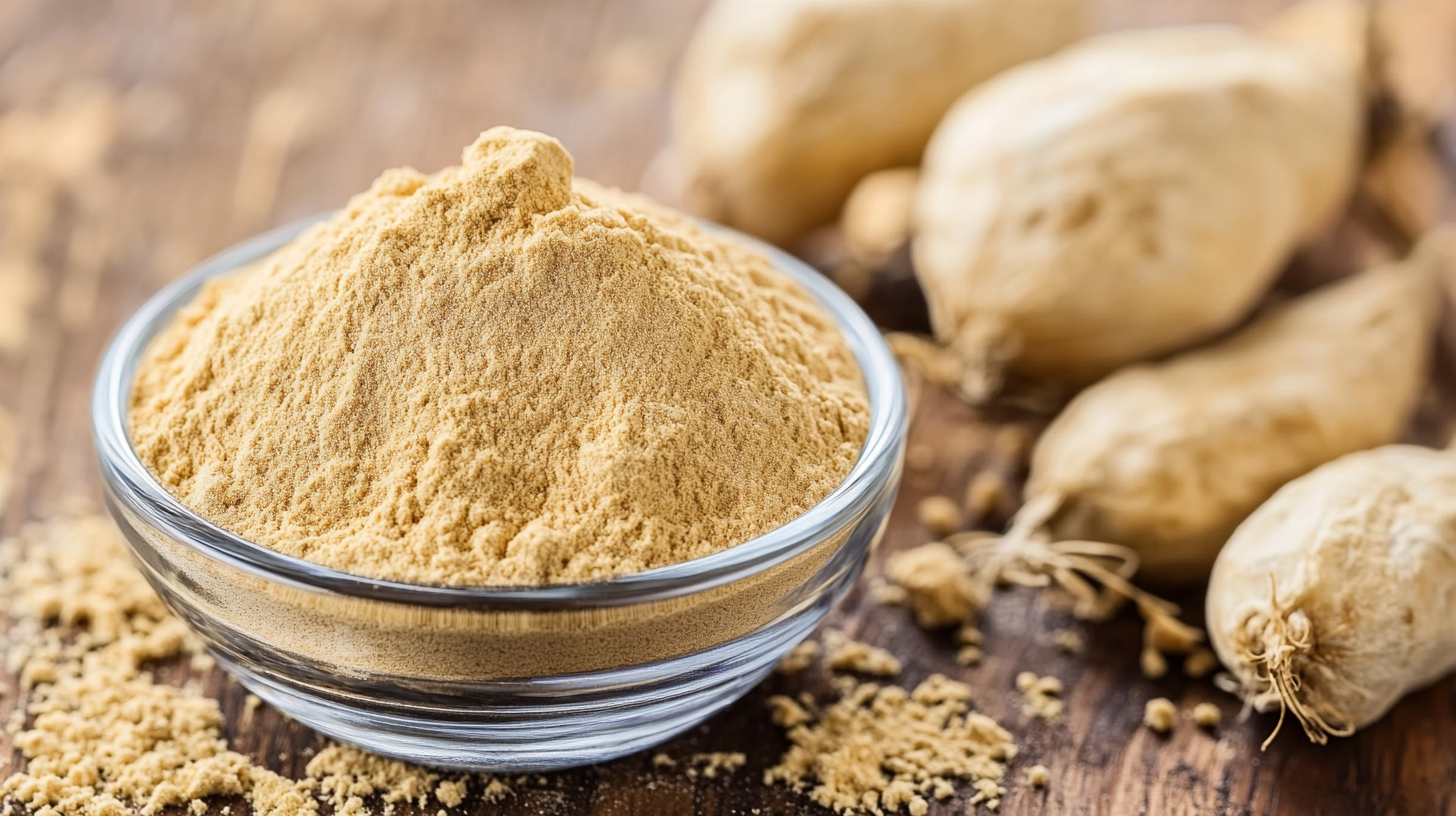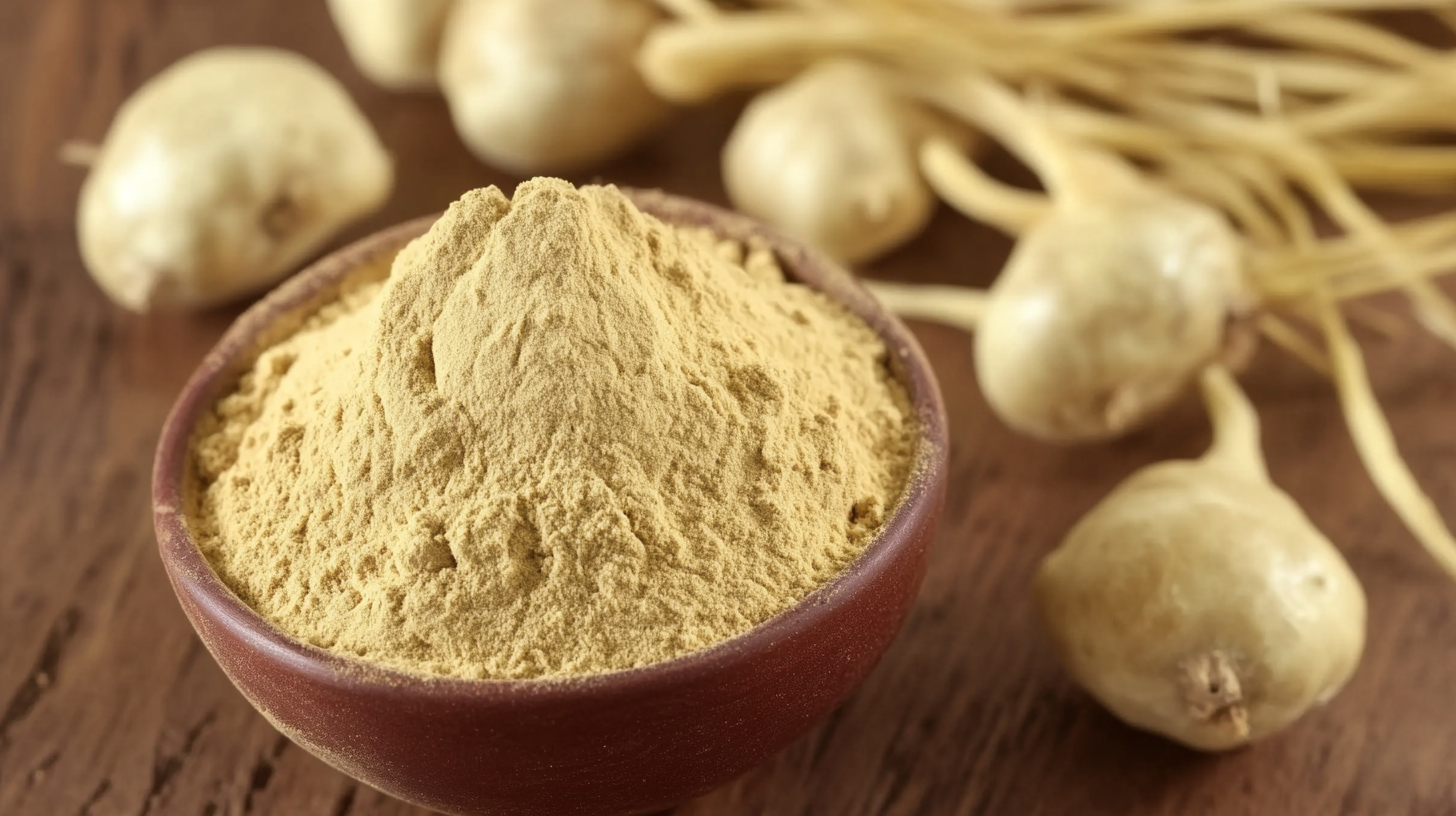
-
Home
-
Products
-
About US
-
FAQ
-
News
-
Tips
-
Contact Us
Leave Your Message
- Phone
- E-mail
- WhatsApp
- WA Business



In the ever-evolving world of global trade, ensuring the quality and authenticity of products is paramount, especially when it comes to health-conscious commodities like Maca Powder. As demand for this superfood continues to rise, so does the importance of understanding the certification processes that govern its import and export. This blog will delve into the latest insights and tips for navigating the complex landscape of Global Import Export Certification specific to Maca Powder in 2023.

We will explore what certifications are essential, the implications of regulations on trade operations, and how businesses can leverage these certifications to enhance their credibility and market access. Whether you are a supplier, importer, or a health-focused entrepreneur, staying informed about these certifications can significantly impact your success in the highly competitive market for Maca Powder.
Obtaining global certification for maca powder is crucial for businesses aiming to excel in the international market. As per the International Trade Centre, the global superfoods market, which includes maca powder, is projected to reach USD 200 billion by 2027. This underscores the increasing consumer demand for high-quality, certified products. Certification ensures that maca powder meets international safety and quality standards, which is essential in building trust with consumers and importers.
Moreover, the global certification process involves rigorous testing and compliance with regulations set by various health and food safety authorities, such as the FDA and EFSA. According to a report by Research and Markets, products with strong certifications often see a market price increase of 15-20%. This premium pricing is a direct result of consumers’ growing awareness regarding product safety and quality. Therefore, investing in global certification not only enhances brand reputation but also significantly boosts market competitiveness and profitability in the booming superfoods sector.
| Certification Type | Issuing Authority | Importance | Key Benefits | Validity Period |
|---|---|---|---|---|
| Organic Certification | USDA | Ensures product is organic | Access to organic markets, consumer trust | 3 years |
| Non-GMO Certification | Non-GMO Project | Verifies non-GMO status | Market differentiation, consumer confidence | Renew yearly |
| ISO Certification | ISO (International Organization for Standardization) | Quality assurance | Improves marketability, enhances quality control | 3 years |
| Fair Trade Certification | Fair Trade International | Social and environmental sustainability | Better prices for producers, ethical marketing | 2 years |
| HACCP Certification | Various accredited organizations | Food safety management | Reduces risks, enhances food safety | 1 year |
When importing maca powder globally, adherence to key regulations and standards is essential to ensure compliance and product safety. According to the International Trade Centre (ITC), the global maca powder market has been growing at a compound annual growth rate (CAGR) of 5.5%, highlighting the increasing demand for this superfood. However, varying regulations across regions can pose challenges for importers. A comprehensive understanding of the U.S. Food and Drug Administration (FDA) guidelines, along with the European Union (EU) food safety regulations, is crucial. For instance, the EU requires a strict evaluation of health claims made by maca powder products, necessitating thorough documentation to demonstrate efficacy and safety.
Furthermore, certifications such as USDA Organic, Non-GMO Project Verified, and Fair Trade can significantly enhance traction in the marketplace. According to a report by Grand View Research, the organic segment of the maca powder market is projected to attain a valuation of $32 million by 2025, underscoring the market's shift toward organic products. Importers should also be aware of the Codex Alimentarius standards, which provide international food safety guidelines. By ensuring that maca powder products meet these standards, importers can mitigate risks of rejection at customs and enhance consumer trust worldwide.

Getting import export certification for maca powder is crucial for businesses looking to thrive in the global market. The process can seem daunting, but with a clear step-by-step guide, you can navigate through the requirements with ease. First, it’s essential to research the regulations specific to your target countries. Each region has distinct guidelines for food products, and understanding these will help avoid potential pitfalls.
When applying for certification, ensure you have all necessary documentation ready. This includes your product specifications, sourcing information, and quality control measures. A helpful tip is to maintain clear communication with your certifying body; they can provide specific insights into their requirements and processes. Additionally, consider hiring a consultant who specializes in import export regulations to streamline your application process.
Finally, stay updated on changing regulations and standards. The global food industry is continually evolving, and being proactive about compliance can position your maca powder business ahead of the competition. By following these steps and remaining informed, you can successfully achieve import export certification and capitalize on the growing demand for maca powder worldwide.
When it comes to sourcing high-quality maca powder, ensuring the integrity of the supply chain is paramount. Best practices for quality assurance begin with selecting reputable suppliers who uphold rigorous farming and manufacturing standards. Opting for organic certifications and sustainability practices helps ensure that the maca roots are cultivated in nutrient-rich soil, free from harmful pesticides and chemicals. Engaging with suppliers who provide transparency about their sourcing methods allows businesses to build trust and track the provenance of their products.

Moreover, implementing regular quality control measures is essential in maintaining consistency within maca powder products. Testing for heavy metals, microbial contamination, and nutritional potency should be prioritized. Establishing clear and robust communication channels with suppliers can facilitate timely updates about any potential quality issues, enabling swift responses and corrective actions. Additionally, businesses should consider participating in third-party certifications that validate their quality claims and help enhance consumer confidence in the products offered.
By integrating these best practices, companies can ensure that their maca powder not only meets but exceeds industry standards, ultimately driving customer satisfaction.
Navigating the complexities of global import-export certification for maca powder can be daunting for many industry players. According to a recent report by the International Trade Centre, the global demand for maca powder has surged by over 30% in the last three years, pushing suppliers to seek proper certification to meet various international standards. This growth underscores the importance of understanding the nuances of organic certification, quality control measures, and safety regulations. Industry experts emphasize that complying with certifications such as USDA Organic or EU Organic is not just about meeting market demands but also about building trust with consumers who are increasingly conscious about product authenticity.
Moreover, a survey conducted by the Specialty Food Association reveals that 67% of consumers consider certifications like organic or non-GMO as essential purchasing criteria. As such, businesses must stay updated with the Food and Drug Administration (FDA) guidelines and other country-specific import regulations. Experts suggest that engaging with certification consultants can provide invaluable insights, aiding companies in overcoming certification hurdles efficiently. As the maca powder market evolves, the key to a successful import-export strategy lies in being proactive about compliance and leveraging certification as a marketing tool to stand out in a crowded marketplace.